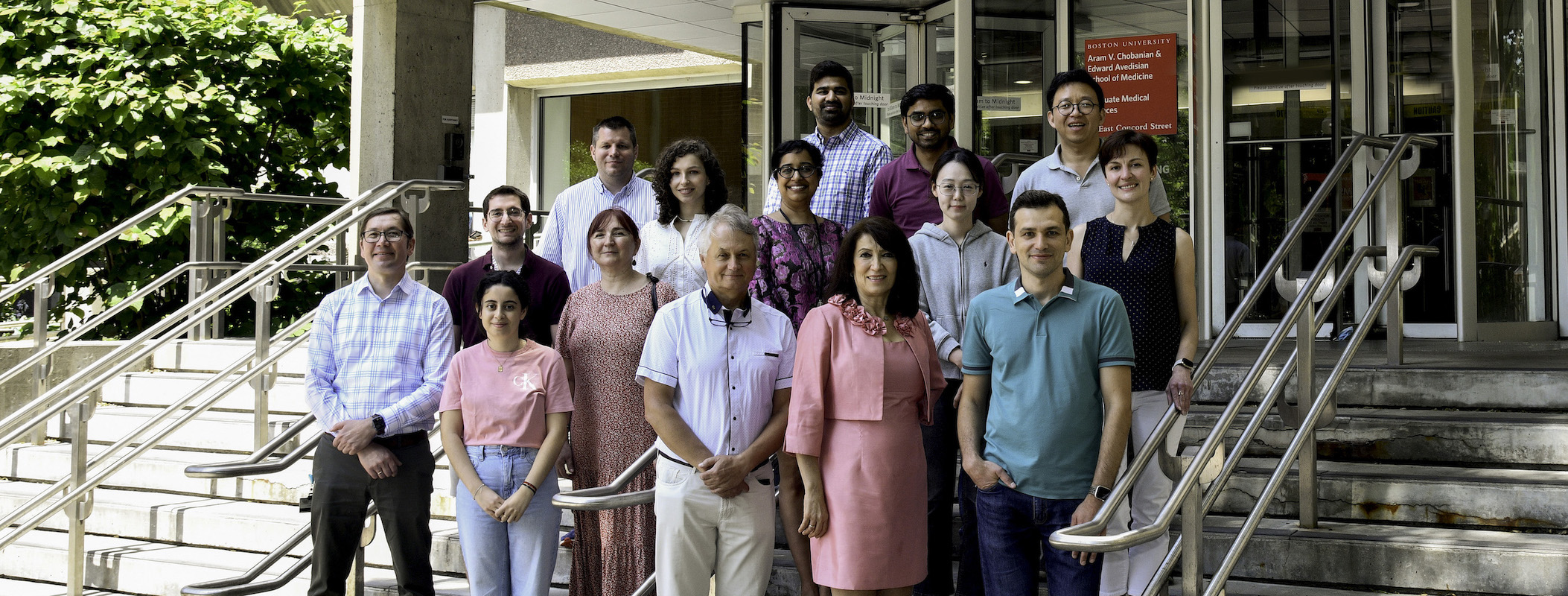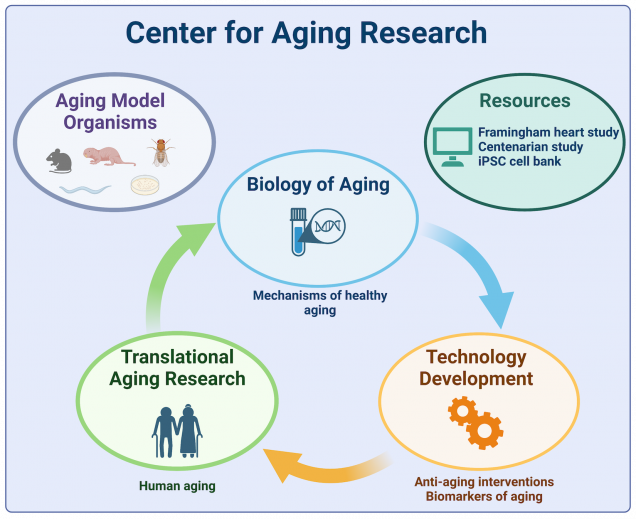
Boston University Medical Campus Center for Aging Research
Uncovering the mechanisms of healthy aging

The strategic concept of our Center focuses on understanding aging through working with various model organisms to discover evolutionarily conserved mechanisms governing the aging process, starting from the budding yeast (Saccharomyces cerevisiae), worms (Caenorhabditis elegans), flies (Drosophila melanogaster) to short-lived and long-lived mammals, such as mice (Mus musculus) and naked mole rats (Heterocephalus glaber), as well as humans. Our inter-disciplinary team of basic researchers working together with clinician scientists across the Campuses focuses on translating innovative discoveries into novel management approaches for the maintenance of healthy human aging and prevention of age-associated pathological conditions.
A particularly exciting and emerging area is comparative biology and systems biology of aging. This is a rapidly developing area, due to the recent availability of high-throughput experimental and sequencing technologies. The goal of our Center for Aging Research is to bring together investigators and research labs in different departments that apply systems biology, quantitative, genomic approaches to understand aging. The research in the Center focuses on such topics as systems biology, integrative and evolutionary approaches, genetic/genomic studies of longevity and healthspan, biomarkers of aging, and omics approaches for understanding the molecular and genetic mechanisms underlying the aging process and how this information can be translated to humans.
Latest Stories
-
Prof. Vladimir Botchkarev Receives 2023 Skin Ageing & Challenges Award for Outstanding Research
Dear Colleagues: We are pleased to share that Dr. Vladimir Botchkarev received the 2023 Skin Ageing & Challenges Reward for Outstanding Read more
-
Sam Beck, Ph.D. Receives 2022 Hevolution/AFAR New Investigator Award in Aging Biology and Geroscience Research
Samuel Beck, Ph.D. received a 2022 Hevolution/American Federation for Aging Research New Investigator Award to support his work on identifying and Read more
-
Daniel Roh was awarded 2022 Glenn Foundation for Medical Research and AFAR Grant for Junior Faculty
Congratulations to Daniel Roh, who was awarded 2022 Glenn Foundation for Medical Research and AFAR Grant for Junior Faculty! The Read more